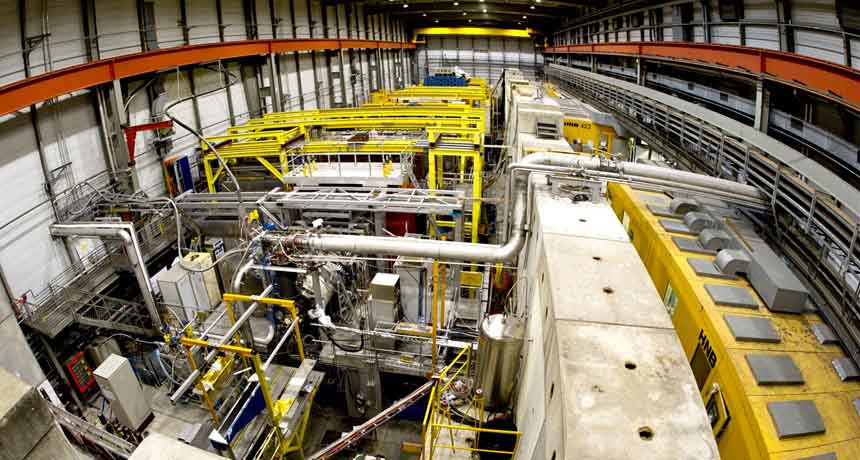AMBER/COMPASS
AMBER (Apparatus for Meson and Baryon Experimental Research) is the next-generation successor of the CERNs COMPASS experiment. It studies questions about fundamental properties of the proton, including its size ("proton radius"), intrinsic spin and internal structure.
AMBER directs particle beams from the CERN SPS onto various fixed targets to study how quarks and gluons combine in hadrons and give rise to their distinctive properties. AMBER will build on COMPASS’s legacy by upgrading the existing COMPASS detectors and by adding new detectors and targets. The readout and data acquisition systems will also be upgraded to achieve the science goals .
COMPASS
COMPASS was a high-energy physics experiment at the Super Proton Synchrotron (SPS) at CERN in Geneva, Switzerland. Presently the main goal of the experiment is to come up for the first with a three dimensional picture of the proton. Earlier investigations in the field of semi-inclusive scattering, polarized Drell Yan reactions and hadron spectroscopy unraveled many groundbreaking results.
The original experiment was approved back in 1997 by CERN authorities. The centerpiece of the experiment, a two stage open field spectrometer, was installed in the following years from 1999 - 2000 and was commissioned finally in 2001. Data taking started in summer 2002 and is ongoing since then.






